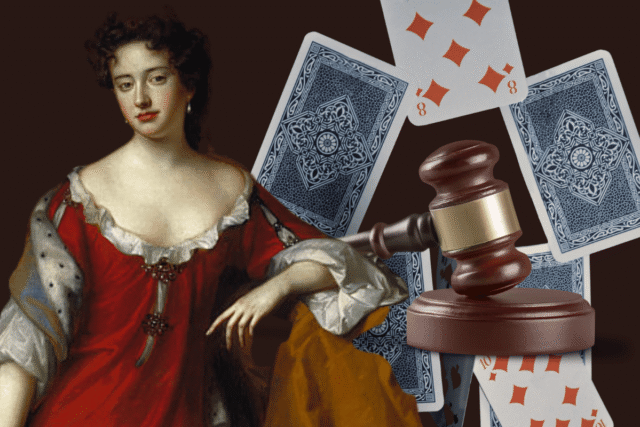DC Gambling Recovery LLC, a company registered in Delaware, is continuing its legal fight against major sports betting operators in the US District Court for the District of Columbia. The company argues that these operators are still breaking federal and local laws, even after the D.C. Council’s recent attempts to update gambling regulations.
In a filing seen by ReadWrite and dated September 29, the company said that “the Council’s attempted sports-gambling carve out is ineffective because it violates federal law.” The lawsuit names several major sports betting companies as defendants, including Caesars Sportsbook, FanDuel, BetMGM, DraftKings, and Fanatics.
Central to the dispute, the company argues that the Professional and Amateur Sports Protection Act of 1992, or PASPA, still applies in the District of Columbia and prevents the local government from allowing or partnering with private companies to run sports betting operations.
The filing states that PASPA makes it “unlawful for any governmental entity, including the District of Columbia, to authorize by law or compact a betting, gambling, or wagering scheme that is based on competitive games in which amateur or professional athletes participate.”
The plaintiff argues that this law “remains effective in the District” and that D.C. “could not have repealed its Statute of Anne,” meaning that “anyone offering sports wagering faces liability for violating it.”
What is the Statute of Anne in DC?
DC Gambling Recovery bases its case on the Statute of Anne, a law first passed in early 18th-century England during the reign of Queen Anne. The statute, which is still technically in effect in the District of Columbia and several other states, allows anyone who loses more than $25 in a gambling session to recover their losses from the winners.
If the loser doesn’t file a lawsuit within three months, someone else can sue instead for three times the amount of the losses, known as “treble damages.” If they win, they’re required to give half of that money to the poor in the parish where the bet took place.
The law crossed the Atlantic with other British statutes and took root in the American colonies, including Maryland. When the federal district was created from parts of Maryland and Virginia, it inherited the law as well.
The company argues that this old statute makes modern sports betting operations illegal and could force operators to return millions of dollars to losing bettors.
The filing also asserts that the defendants, “facing hefty liability and long odds on the merits,” sought political intervention. It claims that the companies “convinced the D.C. Council to amend (but not repeal) its Statute of Anne” as a “legislative escape hatch.”
The company argues that the D.C. Council’s recent changes to gambling laws can’t override federal restrictions and therefore don’t protect the betting operators from possible legal liability.
Modernization of sports betting laws
The District of Columbia, which has joined the case, argues that recent changes to local law have made the lawsuit irrelevant. The D.C. Council updated the gambling laws to modernize them and make it clear that regulated sports betting is legal in the district. DC Gambling Recovery disagrees, insisting that these changes break federal law and are invalid under PASPA, which the company says still applies to sports betting involving professional and amateur games.
“Leaving no doubt as to the incompatibility of these two laws, proposed legislation included in this year’s budgetary process, pending review before the Council for the District of Columbia (the Council), would clarify existing law that D.C. Code § 16-1702 does not apply to sports wagering in the wake of the SWLAA’s [Sports Wagering Lottery Amendment Act of 2018] enactment.” – Attorney General Brian Schwalb argues in an earlier filing
“It is not clear why the District, given its current fiscal challenges, would voluntarily eliminate the possibility of receiving a significant amount of revenue to support its safety-net,” the attorneys, Derek T. Ho and James W. Taglieri wrote in a letter that was first reported by The 51st.
“Make no mistake, Section 2064 [the budget provision] prioritizes the financial interests of gambling operators over the priorities of District residents. We cannot fathom why the Council would take this action.”
Although the Supreme Court’s 2018 decision largely struck down PASPA and gave states the power to legalize sports betting, DC Gambling Recovery argues that the ruling didn’t automatically apply to the District of Columbia. The company says that without specific approval from Congress, the district is still bound by the original federal restrictions.
Kalshi was sued in 5 state courts by 5 Delaware LLCs. All incorporated Mar 18 with identical names, ie “Kentucky Gambling Recovery LLC”. Lawsuits cite same 1710 law allowing 3rd parties to recover gambling losses.
More suits coming? 4 more states allow it. Details in comments. pic.twitter.com/CbVHo33eEO
— Mick Bransfield (@MickBransfield) August 8, 2025
This isn’t the only case invoking the centuries-old British law. Veridis Management LLC and its CEO, Maximillian Amster, are pursuing lawsuits against the prediction market platform Kalshi Inc. in six states, using the 300-year-old gambling statute to try to recover money lost on failed predictions.
Featured image: Art UK / Public Domain / Canva











